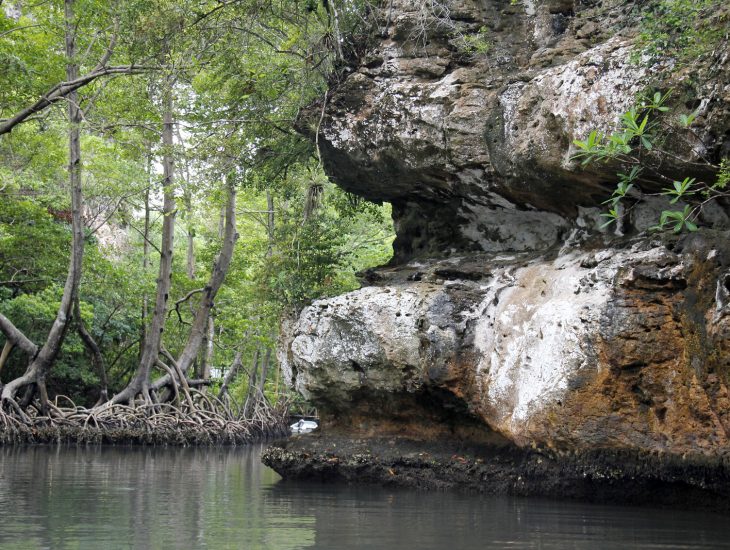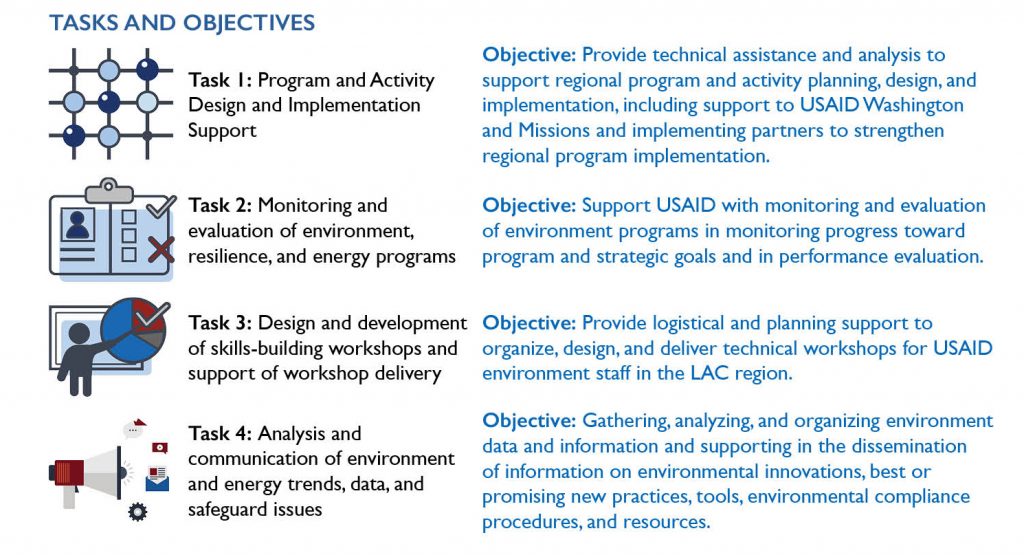
Regions
- Latin America and the Caribbean
Clients
Partners
Environmental Incentives implements the United States Agency for International Development (USAID) Bureau for Latin America and the Caribbean (LAC) Office of Regional Sustainable Development Environment team under the Environment Support Services Contract (ESSC). Under LAC ESSC, EI and partner ICF Macro, Inc., provide demand-driven technical and logistical support services in program and activity design, implementation, management, evaluation, communications, and environmental compliance for LAC regional and bilateral environment, natural resource management, resilience, and energy programs. The LAC ESSC contract focuses on four tasks and objectives outlined below.

EI provides a wide range of environmental and energy sector services under LAC ESSC to support USAID’s LAC/RSD/ENV team and LAC Missions. During years one and two, the contract quickly grew from start-up to robust program delivery, while establishing itself as a proven mechanism for providing demand-driven services to support local engagement and evidence-based solutions to regional challenges in the energy and environment sectors, including biodiversity conservation, water, combating conservation crime, compliance, natural resource management, resilience in sustainable landscapes and climate risk management. Now in its third year, LAC ESSC is broadening its scope to support USAID’s Climate Change Strategy with the focus in climate resilience and mitigation as well as in renewable energy in the LAC region.
Cover Photo: Los Haitises National Park, Dominican Republic. Photo by Bienvenida Bauer for Conservation of Biodiversity and Sustainable Tourism Project.

We can co-create lasting change.
We help our partners improve the performance of conservation and development programs.
Partner with Us